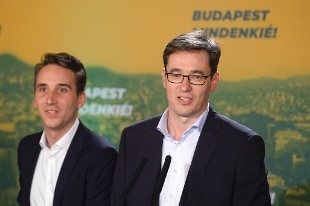- Administrative Hungary, the opposition wins in Budapest
Share
October 14, 2019Viktor Orban, the Hungarian nationalist prime minister, suffers the first electoral defeat since the beginning of his rise to power in 2010, and the opposition finds its way back to hope, having built, with an absolutely innovative strategy, a unitary cartel that in the administration has challenged the prime minister's candidate almost everywhere in the country.Crucial and symbolic, the victory in Budapest, where the left-wing ecologist Gergely Karacsony, candidate of the center-left, won 51% of the votes, ahead of Istvan Tarlos, who stopped at 44% of the votes. Tarlos, in government since 2010, recognized the opponent's victory, and congratulated him on the phone. The Europeanist Karacsony spoke of a "historic" victory: "We will bring the city back from the 20th century to the 21st. Budapest will be green and free, we will take it back to Europe". The cententum centrists, the Socialists, the ecologists entered the cartel of oppositions, and in some cases, however, it was possible to count on the desistance of the extreme right of Jobbik. Karacsony had compared the Budapest run to the Istanbul Mayor's election in March, when Turkish President Recep Tayyip Erdogan's candidate was defeated by the opposition challenger. "Istanbul voted against an aggressive illiberal power in many ways similar to the Orban regime." Since 2010, Orban has reformed Hungarian institutions, concentrating power and control on the media in his hands; and has systematically clashed with Brussels on issues relating to migrants and the rule of law. The opposition cartel also won in 10 of the country's 23 big cities (Pecs, Szeged and Miskol, among them, while Debrecen went to Fidesz), a sign, said Andras Niro-nagy, Policy Solutions analyst, that " a new strategy of cooperation, implemented by the opposition, works ", and paves the way for the decisive challenge of 2022, when general political elections will be held.

